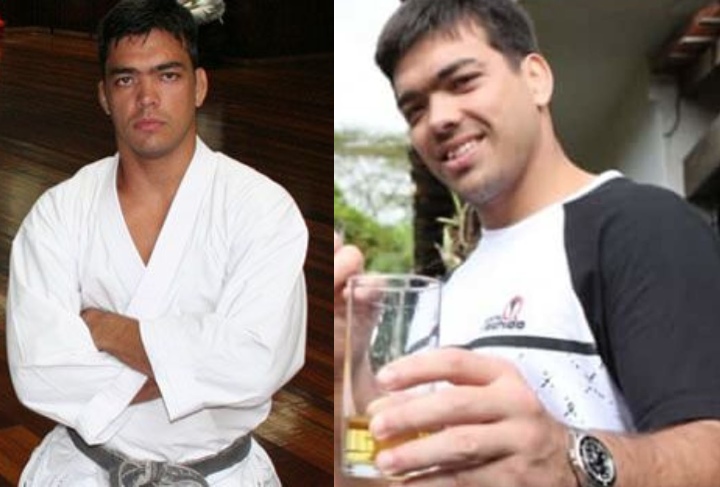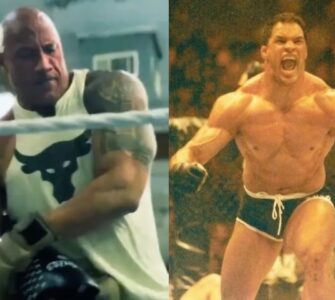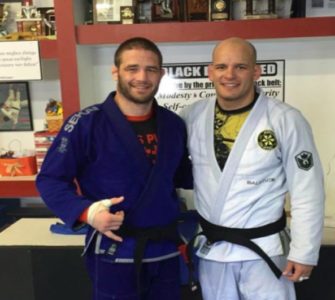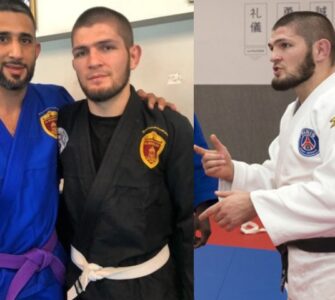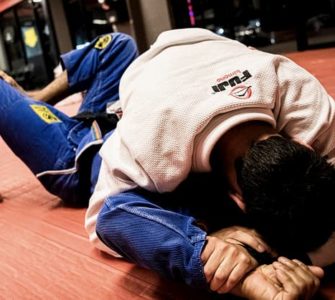The realm of martial arts is often veiled in mystery and misconceptions. Among the various disciplines, Jiu-Jitsu stands out as a form that emphasizes technique, leverage, and the subtle art of ground fighting. Lyoto Machida, former UFC champion, Karate and BJJ black belt, eloquently captures the essence of martial arts and Jiu-Jitsu with his analogy:
“Martial arts is like hot water. If you don’t warm up the water, they’re going to be cold. If you do not train Jiu-Jitsu every day, you are not a black belt anymore. Stop training Jiu-Jitsu for a while, the technique is there anymore.” This statement opens up an important discussion about the role of consistent training in the world of Jiu-Jitsu and whether improvement is possible without regular practice.
The Importance of Consistent Training
Machida’s analogy to hot water is profound. Just as water requires a consistent heat source to remain warm, Jiu-Jitsu skills demand regular training to stay sharp and effective. The complexity and depth of Jiu-Jitsu techniques are such that they require not just understanding but also refining through repetition. Skills in Jiu-Jitsu are not static; they evolve and adapt. This evolution, however, is contingent on consistent practice.
Can One Improve Without Regular Training?
This question is at the heart of Machida’s statement. Jiu-Jitsu, at its core, is more than a collection of techniques; it’s a way of thinking, moving, and reacting. While it’s true that the fundamental techniques learned in Jiu-Jitsu do not simply vanish over time, their effectiveness certainly diminishes without regular practice.
View this post on Instagram
Improvement in Jiu-Jitsu, like any other martial art, is multidimensional. It involves physical conditioning, technique refinement, strategic thinking, and mental toughness. Without regular training, the physical aspects, such as flexibility, strength, and muscle memory, will inevitably decline. Similarly, the strategic and mental components, like quick decision-making and mental resilience, are also honed through frequent practice and sparring.
The Role of Mental Training
However, one area where one might see improvement without physical training is in the understanding of the sport. Through studying techniques, watching matches, and analyzing strategies, a practitioner can gain insights and develop a deeper understanding of Jiu-Jitsu. This intellectual improvement can, to some extent, compensate for the lack of physical training, but it cannot wholly replace it.
The Balance of Training and Rest
It is also important to recognize the role of rest and recovery in Jiu-Jitsu. Overtraining can be detrimental, leading to injuries and burnout. Therefore, while regular training is crucial, it must be balanced with adequate rest and recovery periods. This balance ensures long-term growth and sustainability in the sport.
Lyoto Machida’s analogy beautifully encapsulates the essence of Jiu-Jitsu and the importance of consistent practice. While there may be ways to improve one’s understanding of the art without regular physical training, the decline in technical proficiency, physical conditioning, and strategic application is inevitable. Jiu-Jitsu is a living art that requires continuous nurturing through practice, reflection, and adaptation. In the end, the journey in Jiu-Jitsu is as much about maintaining the warmth of the water as it is about learning to swim in it.

